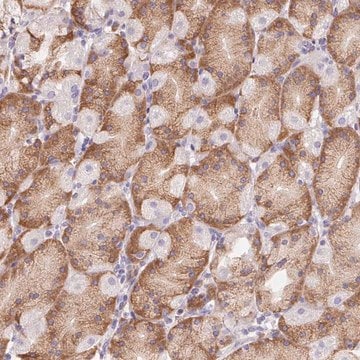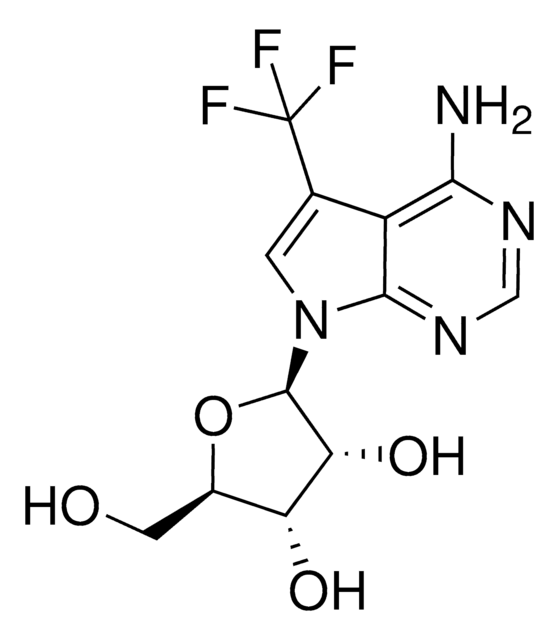A2351
Anti-ADAM-8, Propeptide Domain antibody produced in rabbit
~1 mg/mL, affinity isolated antibody, buffered aqueous glycerol solution
Synonym(s):
Anti-A Disintegrin And Metalloproteinase-8, Anti-CD156, Anti-MS2
About This Item
Recommended Products
biological source
rabbit
Quality Level
conjugate
unconjugated
antibody form
affinity isolated antibody
antibody product type
primary antibodies
clone
polyclonal
form
buffered aqueous glycerol solution
species reactivity
rat, human, pig
concentration
~1 mg/mL
technique(s)
western blot: 1:1,000
UniProt accession no.
shipped in
wet ice
storage temp.
−20°C
target post-translational modification
unmodified
Gene Information
human ... ADAM8(101)
pig ... ADAM8(100156146)
rat ... Tubgcp2(309098)
General description
Anti-ADAM-8, propeptide domain antibody localizes human, porcine, and rat ADAM8 and does not react with other ADAMs. In immunoblotting assays against the reduced protein, the antibody recognizes 52kDa and 70kDa bands in conditioned media or cell lysates. In culture media, the 52kDa form is predominant.
Immunogen
Application
Physical form
Disclaimer
Not finding the right product?
Try our Product Selector Tool.
Storage Class Code
10 - Combustible liquids
Certificates of Analysis (COA)
Search for Certificates of Analysis (COA) by entering the products Lot/Batch Number. Lot and Batch Numbers can be found on a product’s label following the words ‘Lot’ or ‘Batch’.
Already Own This Product?
Find documentation for the products that you have recently purchased in the Document Library.
Our team of scientists has experience in all areas of research including Life Science, Material Science, Chemical Synthesis, Chromatography, Analytical and many others.
Contact Technical Service






![N-(4-Bromophenyl)-3-[[(4-bromophenyl)amino]sulfonyl]benzamide ≥98% (HPLC), solid](/deepweb/assets/sigmaaldrich/product/structures/120/254/f9829d51-31a0-469a-ab52-5e2f49b48d81/640/f9829d51-31a0-469a-ab52-5e2f49b48d81.png)
